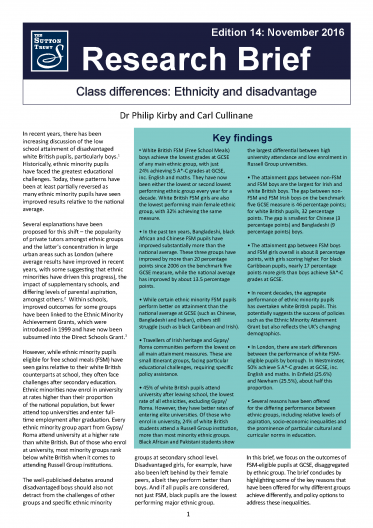Report Overview
Written by Philip Kirby and Carl Cullinane, this research brief highlights how the academic attainment of disadvantaged pupils at 16 varies dramatically between different ethnic groups. It focuses on the outcomes for pupils eligible for free school meals at GCSE. White working class pupils achieve the lowest grades at GCSE of any main ethnic group, with just a quarter of boys and a third of girls achieving 5 good GCSEs. Disadvantaged Chinese pupils perform above the national average for all pupils, while Bangladeshi, Indian, black African and Pakistani pupils from poorer homes all perform well above the national average for disadvantaged pupils. Improvement in urban schools, stronger family aspirations and cultural attitudes are suggested as some of the key reasons why different groups achieve differently.
